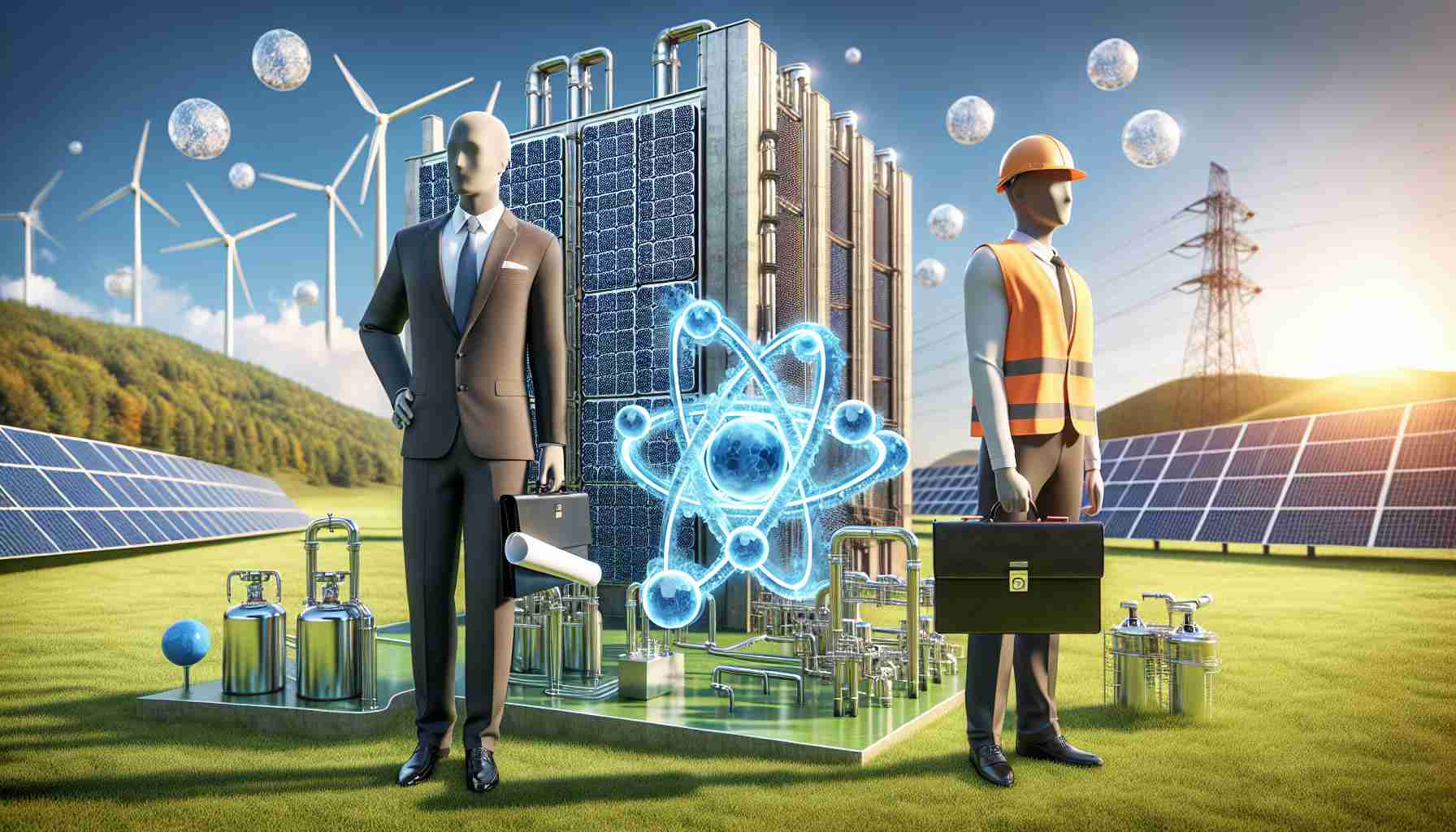U.S.-based FuelCell Energy and Korea Hydro & Nuclear Power (KHNP) have recently formed a strategic partnership to drive the development and implementation of sustainable hydrogen energy solutions. This collaboration aims to leverage FuelCell Energy’s solid oxide electrolysis hydrogen platform and KHNP’s nuclear power plants to transform the energy landscape in South Korea.
By combining South Korea’s domestic clean energy sources with FuelCell Energy’s innovative electrolyzer platform, the collaboration seeks to produce cost-effective, domestically sourced clean hydrogen. This venture has the potential to diversify the country’s hydrogen supply beyond imported fuels, ensuring a more sustainable and self-sufficient energy future.
Hydrogen produced from electrolysis offers unique advantages, such as long-term storage and transportation capabilities. This allows for zero-carbon stored hydrogen energy to be available on demand, derived from renewable sources such as wind, solar, hydro, and nuclear power. Additionally, the electrolyzer technology can be utilized to develop e-fuels for the transport sector and produce ammonia for fertilizer production.
Kong Young-gon, Vice President of Hydrogen and Smart Business Department at KHNP, expressed enthusiasm for this collaboration, emphasizing its alignment with their commitment to innovation and sustainability. Both companies are dedicated to exploring new opportunities in energy transition through hydrogen initiatives, ultimately benefitting their organizations, as well as the communities they serve.
FuelCell Energy, boasting over 100 megawatts (MW) installed and operating in South Korea, brings extensive expertise to the partnership. Meanwhile, KHNP operates a diverse range of electric-generating power plants in the country, including nuclear, hydroelectric, renewable energy, and fuel cells. By joining forces, these industry leaders aim to drive innovation and create sustainable energy solutions that will have a positive impact on the industry and South Korea.
FuelCell Energy’s collaboration with KHNP follows their earlier partnership with Malaysia Marine and Heavy Engineering (MMHE) to develop large-scale electrolyzer facilities in Asia, New Zealand, and Australia. This ambitious venture aims to make clean hydrogen production easily accessible and commercially viable on a large scale.
In conclusion, FuelCell Energy and KHNP’s joint pursuit of hydrogen energy business initiatives represents a significant step towards a more sustainable and self-reliant energy future in South Korea. By leveraging their respective expertise and resources, these companies aim to drive innovation and develop advanced energy solutions that will benefit both their organizations and the communities they serve.
Frequently Asked Questions (FAQ) about FuelCell Energy and KHNP’s Strategic Partnership for Sustainable Hydrogen Energy Solutions in South Korea
1. What is the purpose of the collaboration between FuelCell Energy and KHNP?
FuelCell Energy and Korea Hydro & Nuclear Power (KHNP) have partnered to drive the development and implementation of sustainable hydrogen energy solutions in South Korea.
2. How does the collaboration aim to transform the energy landscape in South Korea?
The collaboration aims to leverage FuelCell Energy’s solid oxide electrolysis hydrogen platform and KHNP’s nuclear power plants to produce cost-effective, domestically sourced clean hydrogen, diversifying the country’s hydrogen supply beyond imported fuels.
3. What are the advantages of hydrogen produced from electrolysis?
Hydrogen produced from electrolysis offers advantages such as long-term storage and transportation capabilities. It allows for zero-carbon stored hydrogen energy to be available on demand, derived from renewable sources like wind, solar, hydro, and nuclear power.
4. What other applications can the electrolyzer technology be utilized for?
Besides producing clean hydrogen, the electrolyzer technology can be used to develop e-fuels for the transport sector and produce ammonia for fertilizer production.
5. What is FuelCell Energy’s expertise in South Korea?
FuelCell Energy has installed and operates over 100 megawatts (MW) of clean energy solutions in South Korea, bringing extensive expertise to the partnership.
6. What types of power plants does KHNP operate?
KHNP operates a diverse range of electric-generating power plants in South Korea, including nuclear, hydroelectric, renewable energy, and fuel cells.
7. What does the collaboration between FuelCell Energy and KHNP aim to achieve?
By joining forces, FuelCell Energy and KHNP aim to drive innovation and create sustainable energy solutions that will have a positive impact on the industry and South Korea.
8. Are there any previous partnerships involving FuelCell Energy in the hydrogen energy sector?
Yes, FuelCell Energy previously partnered with Malaysia Marine and Heavy Engineering (MMHE) to develop large-scale electrolyzer facilities in Asia, New Zealand, and Australia, with the aim of making clean hydrogen production easily accessible and commercially viable on a large scale.
9. How does this collaboration contribute to a more sustainable and self-reliant energy future in South Korea?
FuelCell Energy and KHNP’s collaboration represents a significant step towards a more sustainable and self-reliant energy future in South Korea by driving innovation and developing advanced energy solutions that benefit both their organizations and the communities they serve.
Key Terms:
– FuelCell Energy: A U.S.-based company that specializes in the development and manufacture of stationary fuel cells, aiming to create clean and efficient energy solutions.
– KHNP (Korea Hydro & Nuclear Power): A company in South Korea that operates various electric-generating power plants, including nuclear, hydroelectric, renewable energy, and fuel cells.
– Hydrogen: A chemical element that can be used as a clean and renewable energy source when produced using sustainable methods, such as electrolysis.
– Electrolysis: A process that uses an electrical current to split water into hydrogen and oxygen, with the aim of producing clean hydrogen for various applications.
– Clean Energy: Energy derived from sources that have minimal environmental impacts, such as renewable energy sources (e.g., wind, solar, hydro) and low-carbon technologies (e.g., fuel cells).
Suggested Related Links:
– FuelCell Energy Official Website
– Korea Hydro & Nuclear Power Official Website
